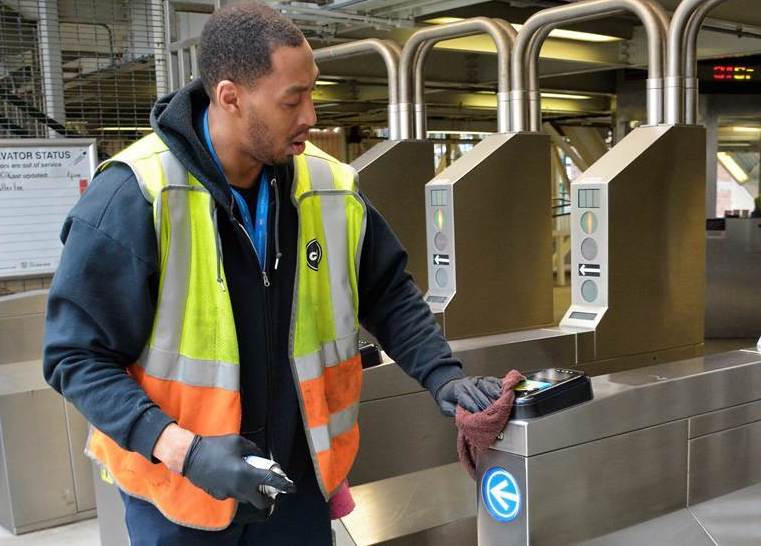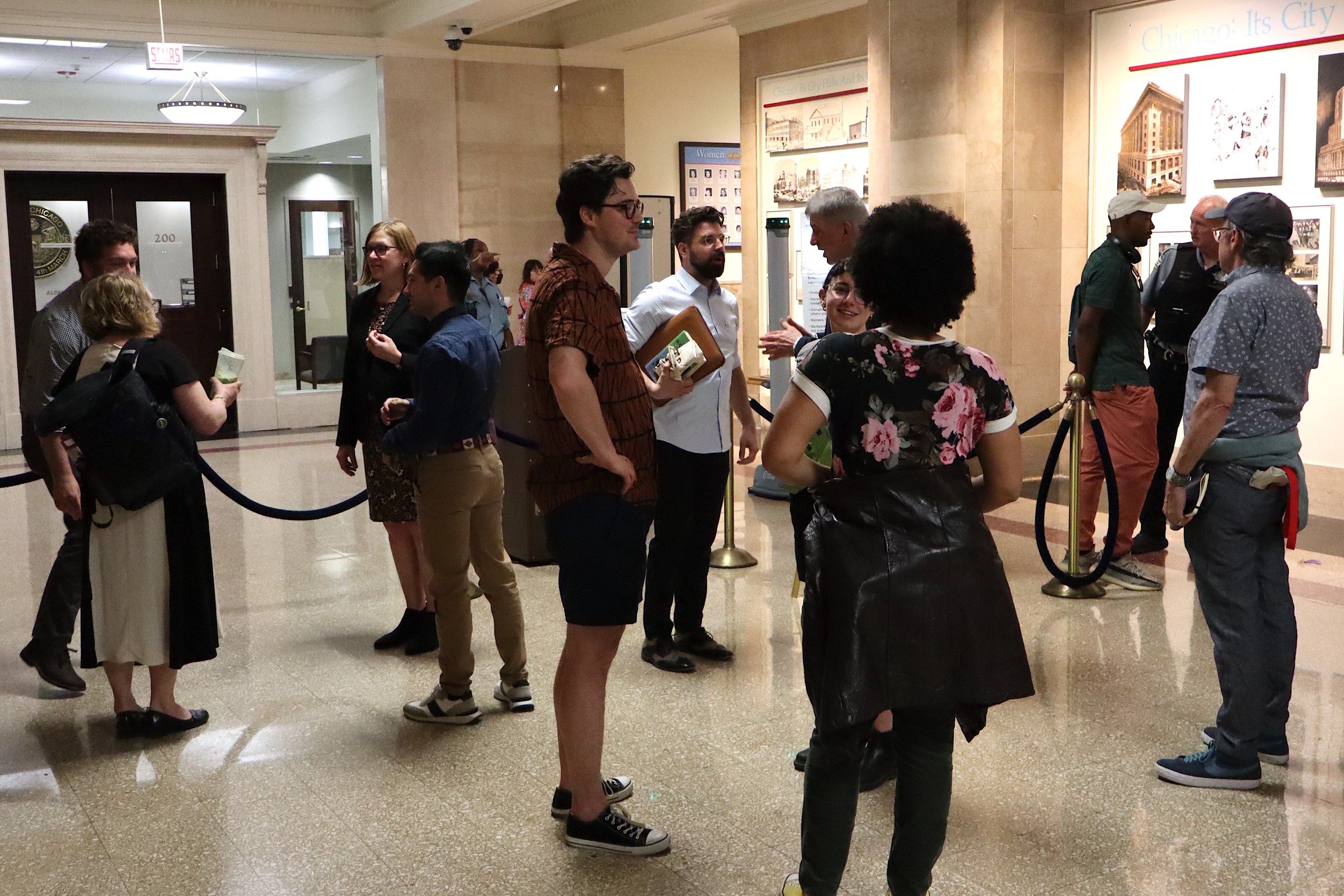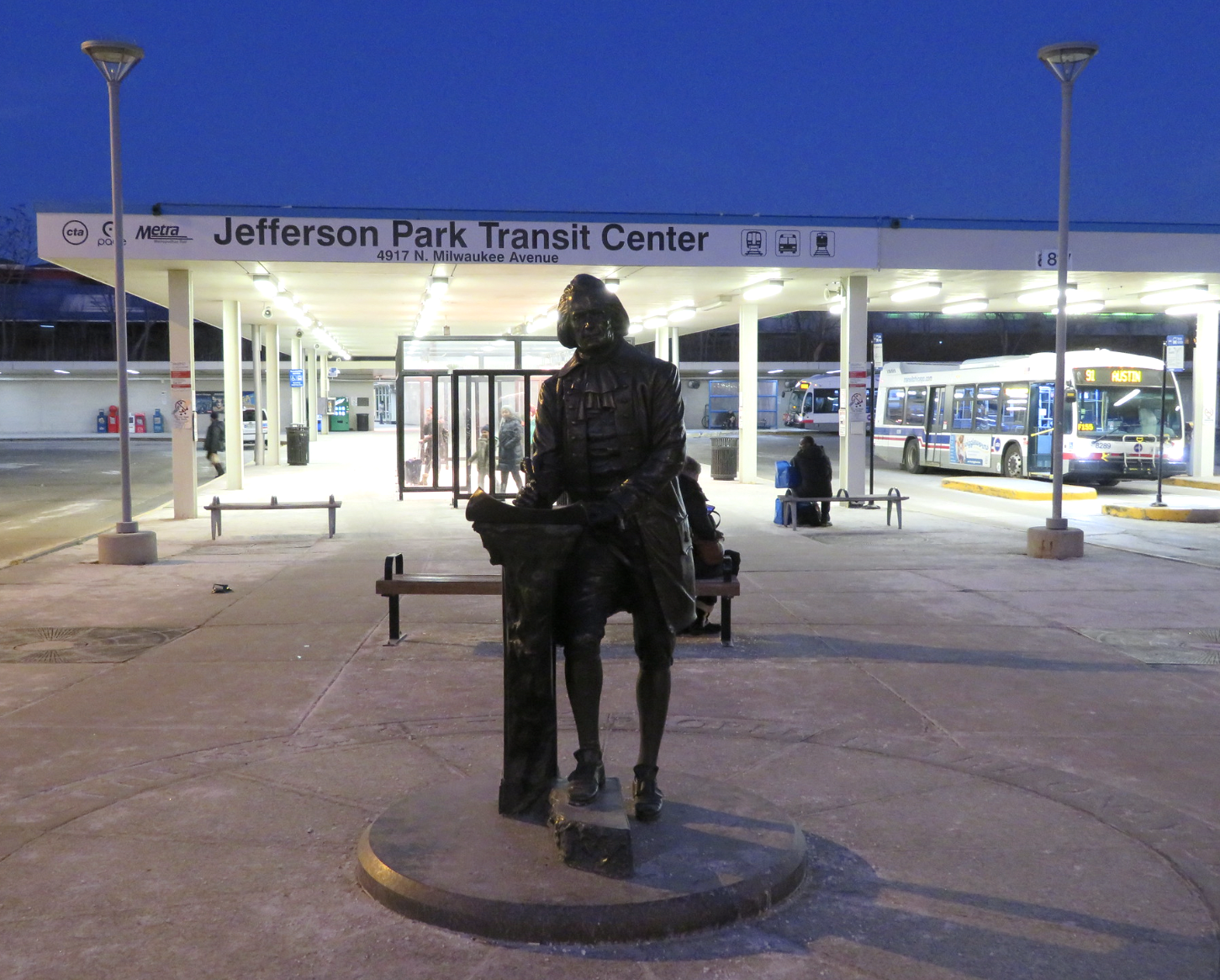Update 3/19/20, 8:45 PM: Metra announced today that it will be running fewer trains on most lines in response to the pandemic, but it will try to maintain the same number of cars on each run as before to prevent crowding.
CTA ridership numbers for Wednesday, compared to the same day last year, show the greatest drop yet during the pandemic. Rail ridership was down 75 percent and bus use dropped 59 percent, for an overall decrease of 68 percent.
Today the Active Transportation Alliance sounded the alarm that Chicago's transit system is in danger of grinding to a halt due to low ridership and farebox revenue. That would be completely counterproductive to keeping the city running during the coronavirus epidemic and ensuring that vulnerable residents get what they need during the crisis. The group argued that emergency funding is needed, and measures need to be taken to protect the health of transit employees.
"Thousands of essential workers like healthcare professionals and grocery store clerks rely on buses and trains to get to work," wrote Active Trans spokesman Kyle Whitehead in a blog post. "Many Chicagoans living in historically marginalized communities rely on transit to get to essential businesses like grocery stores and pharmacies... Bus and train service must be maintained for the healthcare system and local economies to continue to function."
Whitehead added that transit service cuts or a total shutdown would limit the mobility of Chicagoans during this critical time, and running fewer buses and trains would increase crowding and the risk of viral transmission.
He praised CTA, Metra, and Pace for taking precautions to sanitize vehicles and stations, and noted that it's encouraging that Mayor Lori Lightfoot has vowed to keep the CTA going throughout the pandemic.
But the regional transit system is facing massive headwinds. 'L' ridership has dived by 70 percent compared to this time last year, and bus use has dropped by 52 percent. In addition to plummeting fare revenue, other sources of transit funding are sure to steeply decline as well. Sales tax revenue, the chief source of funding for Illinois transit, likely won't recover for months, and gas tax receipts are also certain to fall as driving is reserved for essential trips.
Active Trans has joined over 200 politicians, transit agencies, and advocacy groups to lobby Congress to include emergency funding for transit in a coronavirus stimulus bill.
Click here to tell your representatives to include transit in any COVID-19 bill.
Whitehead noted that one obstacle during the crisis is Illinois farebox recovery ratio, which requires transit agencies to pay for at least half of their operating budgets through ride fees. "We called for state leaders to reassess the farebox recovery ratio in our recent Fair Fares Chicagoland report, which charts a path towards a more equitable transit system. The crisis should speed up the timeline to get that done and legislators should consider lowering the 50 percent mandate, at least until ridership returns to normal levels."
Active Trans also wants local transit agencies to protect their workers by follow the examples of Los Angeles, Detroit, and other cities by temporarily making bus service free to prevent dangerous queueing near the driver; suspending fare enforcement; permitting rear door boarding; and marking seats on buses and trains to encourage passengers to keep their distance from each other to prevent viral transmission.
"Transit workers are on the frontlines of the pandemic, working hard under extremely difficult circumstances to keep the system running and clean," Whitehead wrote. "Active Trans supports the demands for extra protection from our local train and bus operation unions, including providing more gloves, masks, and sanitizer for frontline workers. State and local leaders should step up with emergency funding so agencies can provide these basic protections."
It's going to be crucial for all local sustainable advocates, as well as any one who cares about the wellbeing of vulnerable Chicagoan's and out city's future in general, to stand with Active Trans in the fight to win emergency funding for transit and protect workers during the pandemic. Sign the petition to save transit here, and consider making a donation to Active Trans so that they can continue to keep doing this vital important work.




